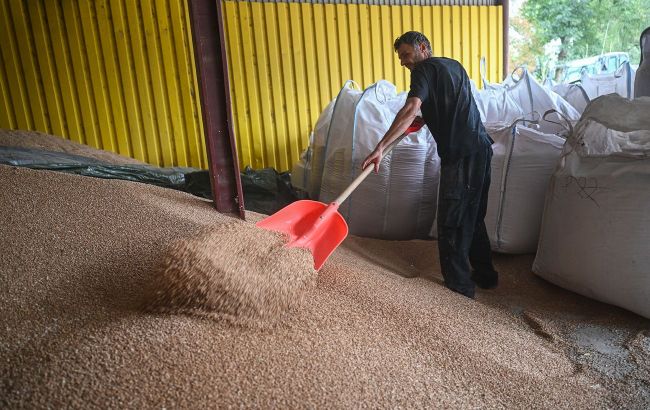EU agreed to Poland's demand to restrict export of Ukrainian food
 EU is ready to meet Poland halfway in restricting the import of food from Ukraine (photo: Getty Images)
EU is ready to meet Poland halfway in restricting the import of food from Ukraine (photo: Getty Images)
The Polish government has secured support from the European Union in its efforts to restrict Ukrainian food exports. Brussels will implement safeguard measures allowing the blocking of food imports from Ukraine if it poses a threat to falling prices in Poland and other neighboring countries, states EU Trade Commissioner Valdis Dombrovskis.
According to him, the proposal will be announced by the end of this week and is likely to include country-specific safeguard measures, allowing Brussels to block imports in case of oversaturation of a specific country's market with Ukrainian food.
"We will be looking at how we can provide additional assurances to Poland and other member states and one way of doing this is introducing protective measures for specific countries," stated the EU Commissioner.
Dombrovskis also noted that the neighboring countries of Ukraine feel the most impact from the export of Ukrainian agricultural products, while for the overall EU market, it will not experience significant disruptions.
He also announced the commencement of negotiations on mutual trade liberalization and called on Kyiv to reduce some of its trade barriers to stimulate exports to the EU amid accession talks.
The EU Commissioner mentioned that the proposal for duty-free trade must be approved by the European Parliament and the majority of EU member countries.
Challenges with the import of food from Ukraine
On June 4, 2022, Regulation (EU) 2022/870 of the European Parliament and of the Council on temporary trade liberalization measures came into effect. The document temporarily suspended a range of tariffs outlined in the Association Agreement between Ukraine and the EU.
Specifically, the temporarily suspended tariffs include:
- customs duties for industrial products;
- suspension of the application of the entry price system for fruits and vegetables;
- suspension of all tariff quotas for agricultural products;
- suspension of anti-dumping duties on imports of goods originating from Ukraine;
- suspension of the application of global safeguard measures concerning Ukrainian goods.
Due to the implementation of this regulation, several countries began experiencing losses due to the oversaturation of their markets with Ukrainian products. Producers in Poland, in particular, have incurred significant losses, leading to a series of protests, including the blockage of the Ukraine-Poland border.
In January, the Minister of Agriculture and Rural Development of Poland, Czesław Siekierski, stated that the imposed ban on grain imports into the country would remain in effect until corresponding rules are developed at the EU level.
Brussels is currently working on a new regulation to extend trade liberalization with Ukraine until June 2025. On January 10, Siekierski wrote a letter to Commissioner Dombrovskis expressing strong opposition to the extension of duty-free trade with Ukraine.
Polish EU Commissioner for Agriculture, Janusz Wojciechowski, demanded that the new trade liberalization regulation for 2025 retain protective provisions and introduce quantitative restrictions on the import of poultry meat and sugar.
Last week, Poland appealed to the European Commission to reinstate tariff quotas for certain Ukrainian products but was met with a refusal.
Bulgaria, Poland, Romania, Slovakia, and Hungary are urging the European Commission to impose import duties on Ukrainian grain, citing alleged unfair competition.

